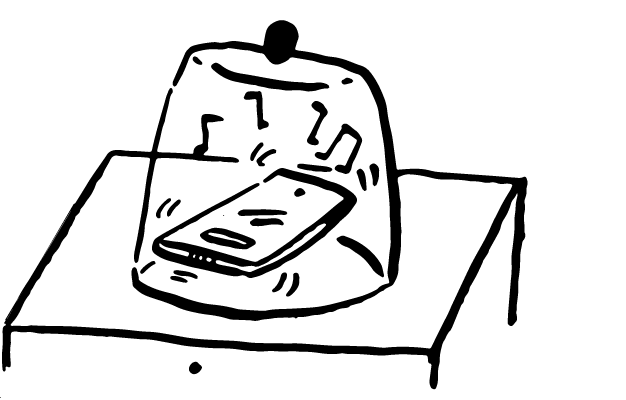Observations:
Contexts

Observations are a live library of ideas to help you get unstuck. We talk to social development innovators, doers and thinkers and ask them to share their thoughts. These are some of their insights, served as small, refreshing nuggets of wisdom. Please, grab a bite and nurture your imagination!
Illustrations: Ivana Čobejová
A beautiful mess called the world
How do we use contexts to interpret the world in a different way? How do we make sense of messy, tangled-up systems? How do we understand problems in the development sector and frame challenges that communities – and humanity as a whole – are facing?
A boar, a piece of coal, a snowfall, an alarm clock: we’ve collected four objects – four stories – which may help you discover new contexts and see things from a different perspective.

A disruptive accident
My dearest son, […]; so begins the Admonitions – a precious medieval collection of moral and political precepts that King Stephen I of Hungary, according to legend, compiled himself for his son Emeric.
Apparently, the old king was truly worried about leaving his kingdom in good hands. He had his son educated by a Venetian monk in a strict and ascetic spirit, then he composed the Admonitions to ensure that his heir faithfully followed the political path of his father. All predetermined; all thoroughly planned.
Only things didn't follow those plans. In the year 1031, Emeric – aged 24 and not yet king – was killed in an unfortunate encounter with a wild boar while he was hunting in the woods. King Stephen survived all of his children, and his death was followed by civil wars which lasted for decades.
Memo for the next Admonitions: add a chapter about the disruption of major political systems, institutions and narratives. How do we deal with those when our plans go south?

How many times do we “snooze” it?
In the UK alone, the snooze button is pressed an impressive 50 million times every morning. The stats count both those who hit the button once, and those doing it countless additional times.
Scientists, however, almost unanimously agree that the effects of the snooze button are really unhealthy. Despite its harmless appearance, the snooze button messes up our REM cycle and confuses the brain, which erroneously starts secreting the neurochemicals that cause sleep.
How many times do we collectively hit the snooze button when confronting complex challenges? Kyoto, Copenhagen, Paris: governments are failing to meet their own pledges on decarbonisation, which were themselves acknowledged to be inadequate.
Most of the people working in development are feeling disoriented, just like our brains in the morning. We have hit the snooze button too many times. Should we quit?


Happiness in misery
The world is messy, and so are the contexts of development challenges. Very often our efforts have little effect, or may even trigger more problems. It's normal to feel overwhelmed.
But it's also important to know that difficult doesn't mean lost. What if we change the way we perceive and narrate the contexts of our reality? What if we begin accepting that we can’t control everything, that we may fail, but that communities can still evolve and adapt to change?
Where do we go from there?


